WOMEN PASSING SPECIAL FORCES SELECTION? YES, YOU CAN
- By Steve Balestrieri
Share This Article
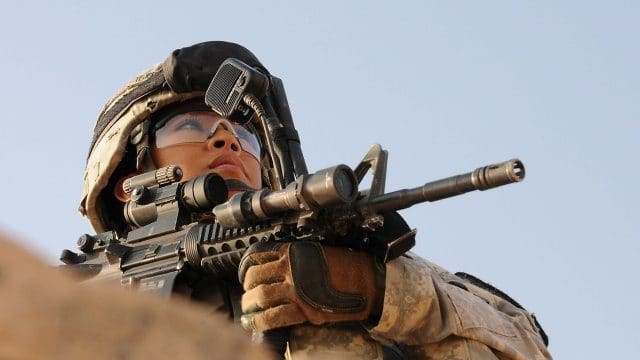
The United States Special Operations Command, (SOCOM) is largely considered “man town†where the roosters rule the roost. And it is true, the vast majority of operators across the board in all of the services are all men. But things are changing. More and more, women are now vying for those choice slots to serve in special operations forces.
And despite what some people will say, it isn’t anything new, but back when it began, it just wasn’t advertised. Special Operations Forces in World War II for the United States was primarily the domain of the Office of Strategic Services (OSS). The forerunner for both CIA and the Army’s Special Forces, OSS had about 4500 women serve in its ranks during WWII. While the vast majority served stateside in a support capacity, about 900 served overseas and several distinguished themselves as outstanding operatives and risked life and limb doing highly dangerous work in the intelligence and special operations realms.
Virginia Hall, the famous “Limping Lady†was arguably the best agent the Americans possessed in World War II. She worked for the British Special Operations Executive (SOE) and then OSS, where, in occupied France, she trained three battalions of French Resistance and during the buildup to the D-Day invasion, her charges mapped drop zones for supplies and commandos from England, found safe houses, and linked up with a Jedburgh team after the Allies landed at Normandy.

Hall’s resistance group destroyed four bridges, derailed several freight trains, severed a key rail line in multiple places, and downed telephone lines. They were also credited with killing some 150 Germans and capturing 500 more. And she accomplished all this despite missing the lower half of one leg. After the war, she was awarded the Distinguished Service Cross, America’s 2nd highest award for valor, the only time in WWII that it was awarded to a civilian.
In SOCOM today, there are plenty of women who work in the Civil Affairs, Psychological Operations, intelligence, medical, and aviation fields. In the Air Force’s Special Operations Command (AFSOC), there are women serving as Wing commanders, Squadron commanders, pilots, and other leadership positions.
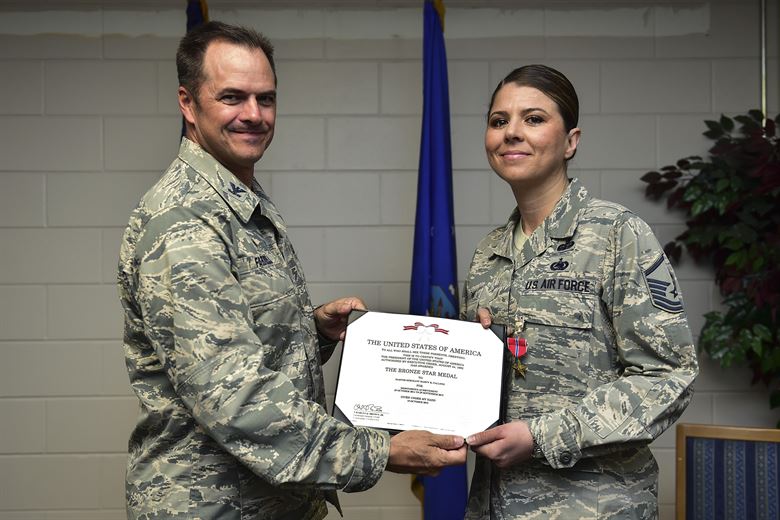
But today, with more and more women passing Ranger school, and a handful passing SFAS, some others have attempted MARSOC Assessment and Selection. While several women have worked alongside Navy SEALs as enablers, none have attempted BUDs yet. Women are now going to try to step into the next realm as the “boots on the ground†operators. It isn’t going to be easy. There will be pushback from some of the units (perhaps offline of course) and with many of the male instructors taking a stand against what they perceive to be a lowering of the standards by allowing women into their previously closed off domain. And there will be the inevitable pushback from many of the operators themselves who like things exactly as they are.
This isn’t an exercise in whether women should be allowed as operators in Special Operations units. That question was decided a while ago. Now, as to the nuts and bolts, how can a woman pass Selection and become a member of the Special Forces Regiment.
If you’re one of the women who have a hankering to be in Special Forces, there a few basic qualities that everyone applying should have:
Physical Fitness
Physical Strength
Above Average Intelligence
Mental Toughness
You have to be very physically fit, but not to the point of being able to run with a Kenyan marathoner; be strong, but not be built like an NFL linebacker, and be smart, but you don’t have to have a patent on new rocket fuel.
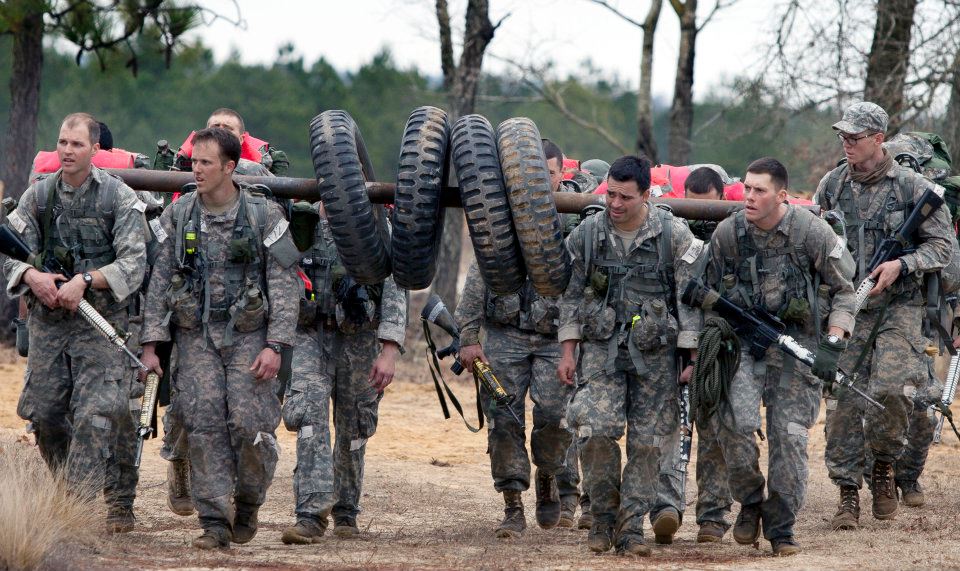
Being physically fit is important; you must be able to do all of the tasks laid out before you and then be ready to do them again, and maybe—actually, frequently—even more than that. That is the essence of Selection and Assessment (SFAS).
Most people who apply for SFAS are the top studs physically in their own conventional units. They’ll quickly find that in SF, they’re now just members of the pack. Everyone can run, ruck, and handle all of the tasks thrown their way. Some will have their own strengths but there will always be someone who can outperform you. Therein lies the motivation to constantly better yourself.
The physical strength is self-explanatory. In Special Forces units, you’re going to be carrying more and more equipment and nearly every training event is built around carrying a rucksack. In SFAS, that rucking will be a constant, along with being tasked to do increasingly physical tasks that require more than a modicum of strength. An old friend who was a Battalion Commander of the Special Warfare Center (SWC), once said that a successful SF candidate had to be a “rucking, rope-climbing, MFer.†And that is true.
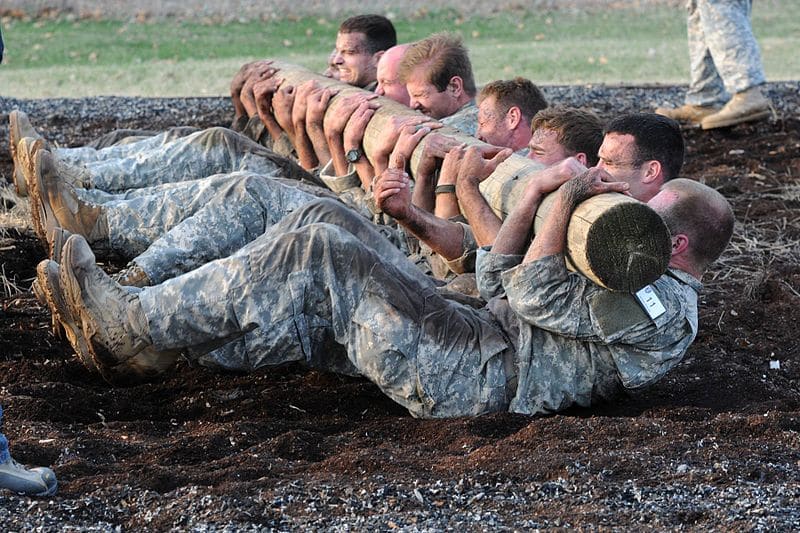
SFAS will also test one’s mental acuity. You’ll be tasked with solving difficult problems while you’re tired, hungry, and physically drained. That is what the course was designed to do. The SF cadre NCOs are looking for people who can think and make sound decisions when under an incredible amount of physical and mental stress.
We all know that old cliche, that “fatigue makes cowards of us all,†and… it is absolutely true. Ask anyone who made it through Ranger School, SFQC (Special Forces Qualification Course), the Air Force Commando or PJ training, Marine Corps Raider training, or BUD/S (Navy SEAL training), and they’ll almost to a man tell you about a guy (or girl) who was more than physically capable but fell by the wayside.
My own SFQC class had physical studs who were gone quite early in the process. Once I began working at Selection, it became an all too frequent sight. Guys who were in obviously better physical condition than some of their counterparts were doing the duffel bag drag back to Ft. Bragg. That’s because the secret of passing these courses can’t be always be measured in factors that can be quantified.
The answer is, as we used to tell our SFAS candidates, “so simple that it is hard to understand.†People are successful at what we do because of what’s inside of them.
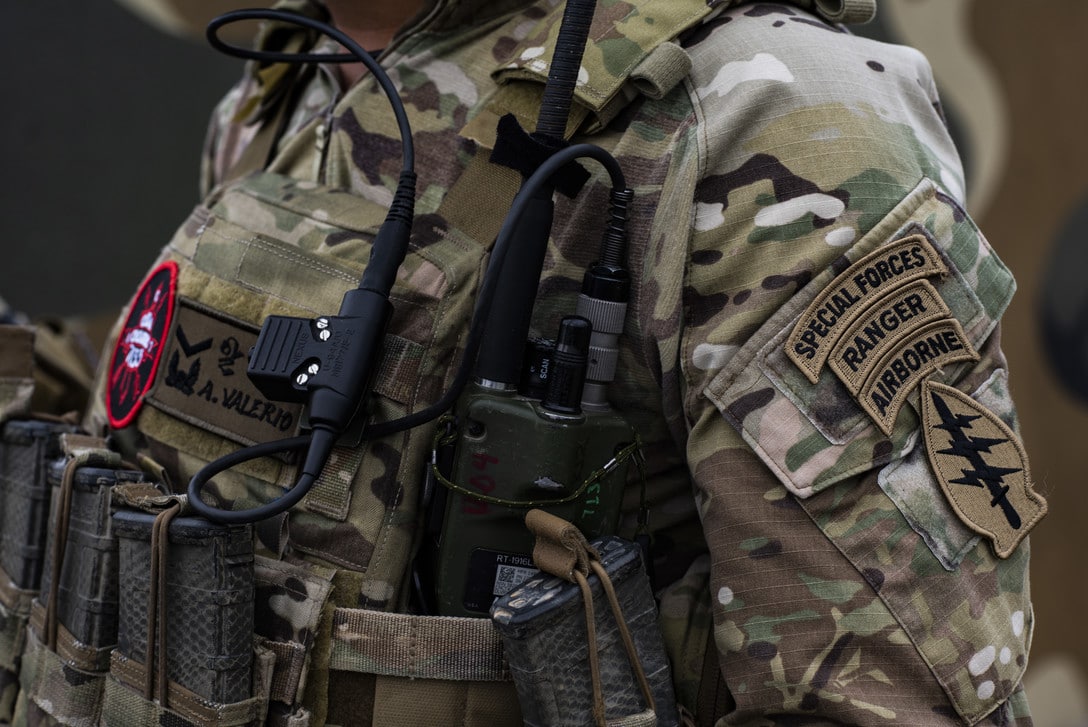
There has to be a burning desire to succeed, an ability to think clearly when under stress or in a very stressful situation. And every successful SF soldier, who passed SFAS and then moved on to the Regiment, without fail, responded to that added stress by increasing their motivation to succeed. SF operators don’t look externally for solutions to problems, but internally. It is about perseverance.
Several years ago, I conducted an interview with Brian Decker, who revamped the way Green Berets in the Army were trained. As we had initially started SFAS In the past, things in the ensuing years began to go awry. General Ed Reeder saw that we weren’t identifying the correct traits to get successful SF operators through the course. Decker recognized what needed to change.
Decker identified that most of the problems that candidates in the course were having were social in nature. He realized that the internal drive to succeed is the best indicator of success in SF operators. He learned that each successful candidate responded to stress in their lives with a heightened sense of motivation.
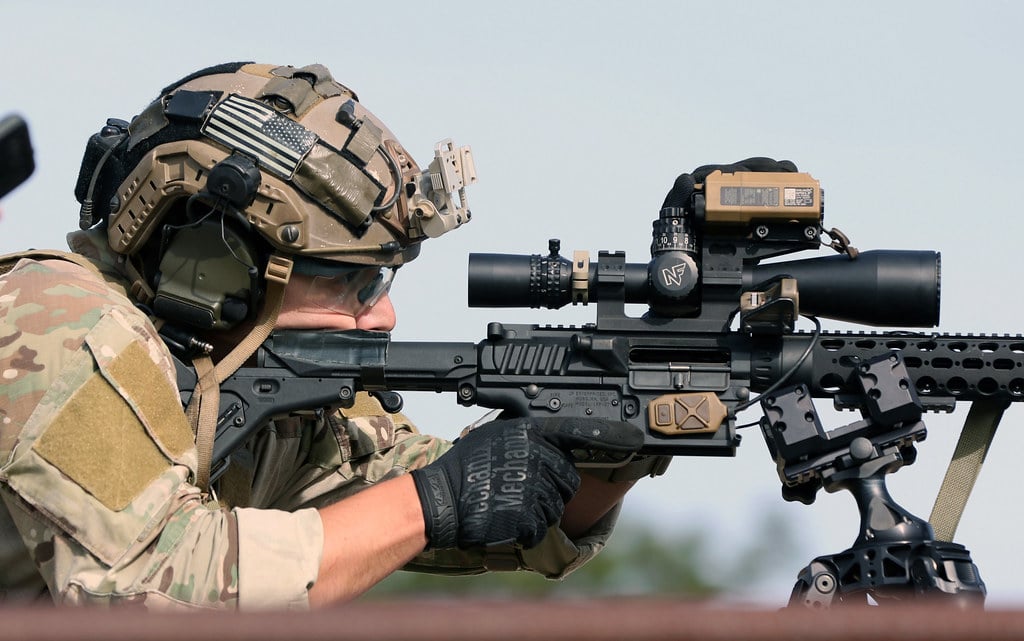
Decker’s talent for identifying the correct talent has now taken him from Camp Mackall to the NFL, where he is helping the Indianapolis Colts select the right people to succeed in the world of professional football. Although the talents needed to thrive in the NFL may be different than those required of a Special Forces Green Beret, the internal drive to succeed—the will to keep going when the going gets tough—is no different.
Decker told me this and it rings true—man or woman. Physical ability or talent of an individual will only take them so far, but what ultimately makes an operator successful is their character, their makeup, their approach. So what would stop an SF soldier from reaching their full potential comes down to the way they approach their craft.
Having been in the Regiment and served in combat, I understood what constitutes a good Special Forces operator and that was invaluable because you have to know your own line of work. The most successful people in any profession all have the same attributes. They all have grit, they all have extremely good work habits. They all have the mental toughness, the confidence which comes from practice and preparation, and the optimism and belief that they can achieve. They are extremely intelligent. What makes a good operator…there is a lot of similarities with other professions. A good SF operator, as with other professions, approaches their craft in the same way. Very much with a growth mindset, they’re more intrinsically motivated by internal factors and view success as a process. They tend to internalize feedback rather than externalize it to their environment. They all tend to be smart specifically to what they do.
Of course, there are the normal discriminators involved with SFAS, the timed runs, rucksack marches, and the Star Land Navigation Course out in Hoffman, NC outside of Camp Mackall. It is billed as the toughest land navigation course in the military…and there aren’t any arguments here. But those are all skills that can be learned and/or trained to the standard before you attend the course. All that requires are those same qualities that are listed above.
Are you a strong runner but have trouble carrying a heavy ruck? Then you know what you need to work on, and that means long before you show up at Camp Mackall. If you’re not 100 percent comfortable with a map, compass, and your ability to navigate five to six kilometers and finding a point the size of a fence pole in very tough terrain, then you have a lot of work to do.
This is where I’m supposed to tell you that if you do all of those things, that you’re going to get selected and be accepted by your peers. I’m supposed to… but will not. The truth is there are a lot of hard feelings with women moving into becoming operators on teams.
Just passing the course and meeting the standards won’t be enough for some of your peers. There will be some who will be convinced the standards were different for women. The solution? Leave no doubt in anyone’s mind, ignore the noise, and do your job.
Related Posts
Sandboxx News Merch
-

A-10 ‘Thunderbolt Power’ Poster
$22.00 – $28.00 Select options This product has multiple variants. The options may be chosen on the product page -

F-35 ‘Lightning’ Poster
$22.00 – $28.00 Select options This product has multiple variants. The options may be chosen on the product page -
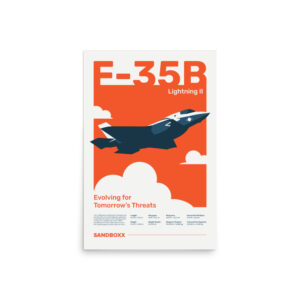
F-35 ‘Evolution’ Poster
$22.00 – $28.00 Select options This product has multiple variants. The options may be chosen on the product page
Steve Balestrieri
Related to: Special Operations
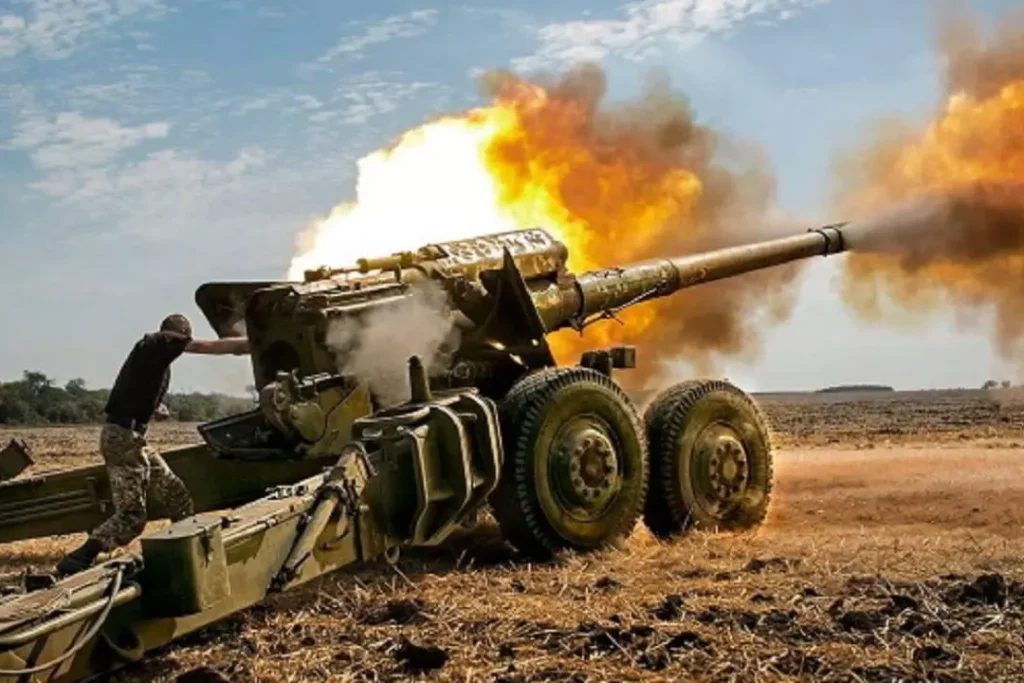
Ukraine is much better at combined arms operations than Russia
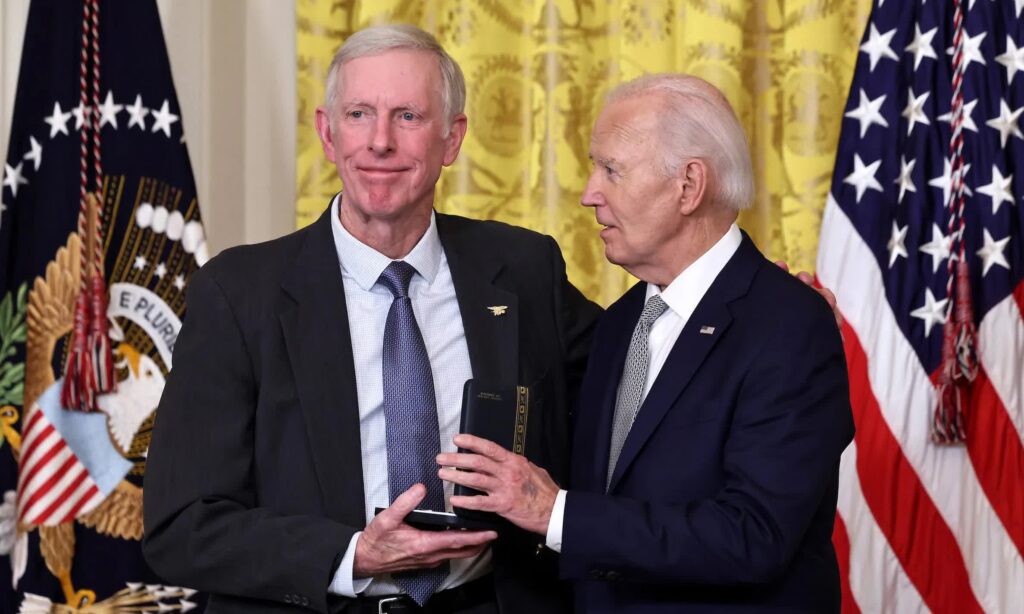
Former Navy SEAL and pioneer combat medicine physician is awarded Presidential Citizen’s Medal
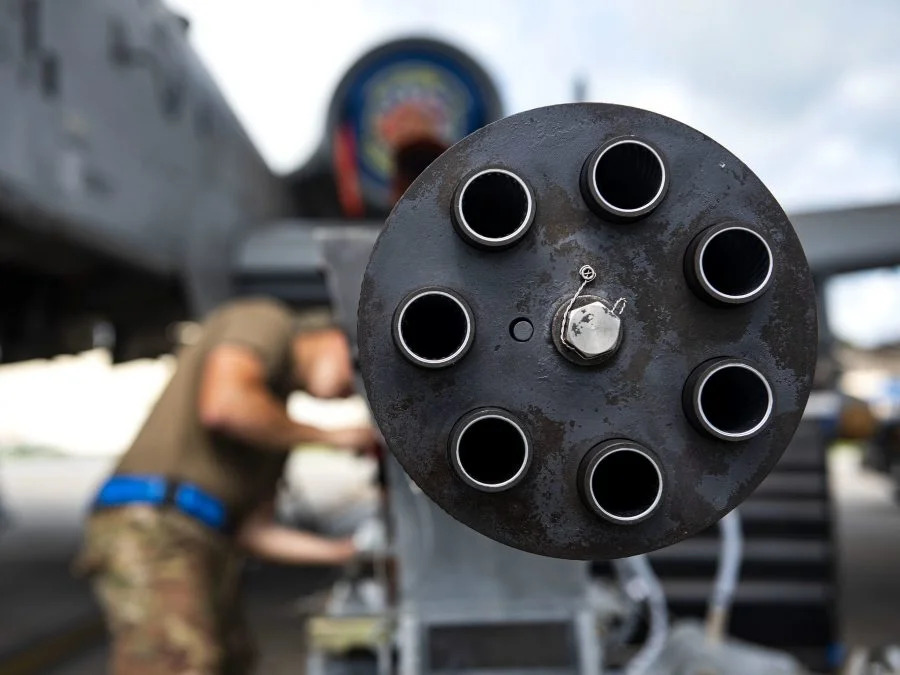
Video: DARPA wants to arms a missile with cannons
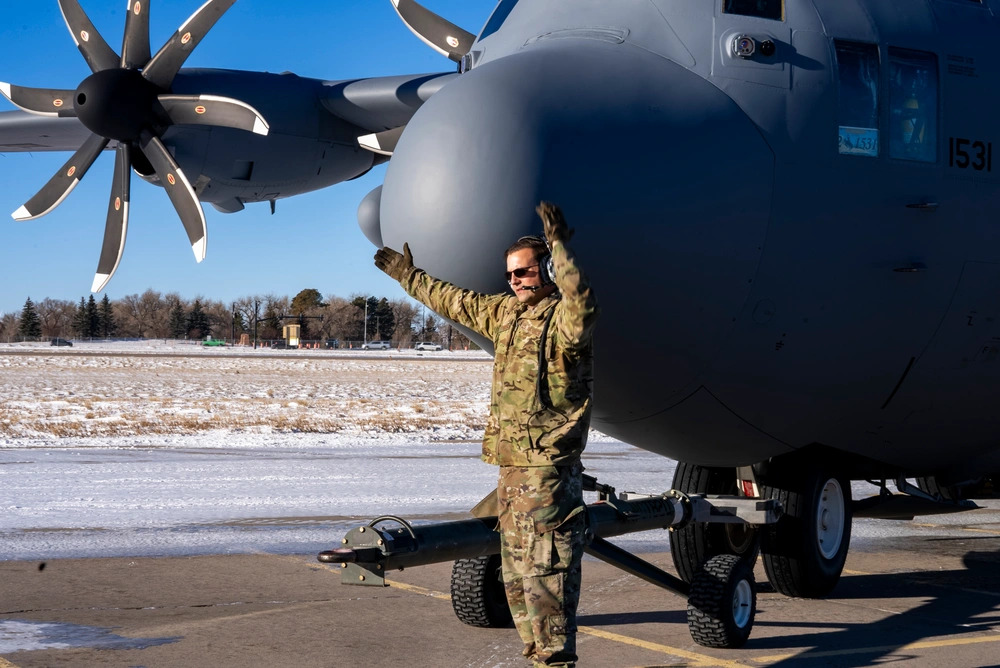
Video: US military sends aircraft to help with LA fires
Sandboxx News
-

‘Sandboxx News’ Trucker Cap
$27.00 Select options This product has multiple variants. The options may be chosen on the product page -

‘AirPower’ Classic Hoodie
$46.00 – $48.00 Select options This product has multiple variants. The options may be chosen on the product page -

‘AirPower’ Golf Rope Hat
$31.00 Select options This product has multiple variants. The options may be chosen on the product page -

‘Sandboxx News’ Dad Hat
$27.00 Select options This product has multiple variants. The options may be chosen on the product page
